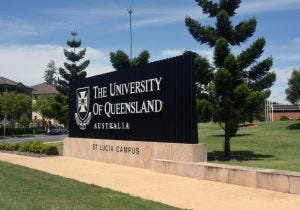
Cytiva – formerly known as GE Healthcare Life Sciences – will develop a prototype affinity resin to support a COVID-19 vaccine candidate being developed by the University of Queensland
A team from the University of Queensland (UQ), Australia is working on a fast-tracked vaccine for the novel coronavirus, COVID-19, using its molecular clamp’ technology.
The platform tech, invented by UQ scientists and patented by UniQuest, aims to provide stability to the viral protein that is the primary target for our immune defense, allowing the speedy generation of vaccines for viruses such as influenza, Ebola, Nipah and MERS coronavirus. UQ began developing a COVID-19 vaccine in January, and achieved proof-of-concept just three weeks later.
The molecular clamp technology locks the ‘spike’ protein into a shape which allows the immune system to be able to recognize and then neutralize the virus.

Image: iStock/Scott Kenneth Brodie
To progress the manufacturing of the candidate, UQ has entered into a development and supply agreement with bioprocess vendor Cytiva.
“Cytiva is supporting the development of UQ’s vaccine candidate from the preclinical phase all the way through to phase II manufacturing,” Daria Donati, director BD and Innovation at Cytiva, told Bioprocess Insider.
“In the preclinical phase, Cytiva provides consultation support for the Phase I material manufacture at CSIRO in Australia through our Fast Trak Biomanufacturing Services team. On what we call downstream processing (the purification part of the manufacturing process), UQ’s proprietary molecular clamp technology uses a specific affinity-based resin for the primary capture of the vaccine.”
The UQ developed affinity ligand binds to the vaccine in a highly specific manner, and Cytiva will immobilize this ligand to one of its base matrix to turn this into an affinity resin that can purify the vaccine.
“Once the Phase I material is produced, the Cytiva team will manage the tech transfer, scale the process for Phase II and manufacture the clinical material necessary for Phase II clinical trials at its Fast Trak facility in Marlborough, Massachusetts. The manufacturing is developed and performed on a Cytiva FlexFactory platform to ensure speed and seamless transfer between development and manufacturing sites.”
The ligand would work for other COVID-19 candidates, according to Donati, as long as they are developed using the UQ’s molecular clamp technology.
This isn’t the first collaboration between UQ and Cytiva. Cytiva has been part of the ARC Training Centre for biopharmaceutical Innovation located at Australian Institute for Bioengineering & Nanotechnology (AIBN) at University of Queensland, where Cytiva provides biomanufacturing technologies and expertise.
UQ’s commercial partners also include the Dutch company, Viroclinics Xplore, Lonza, and Thermo Fisher Scientific, and the team has also been given access to key adjuvant technology from CSL/Seqirus, Dynavax and GSK.
About the Author
You May Also Like

schedl_b_and_w.jpg?width=100&auto=webp&quality=80&disable=upscale)
schedl_b_and_w.jpg?width=400&auto=webp&quality=80&disable=upscale)



